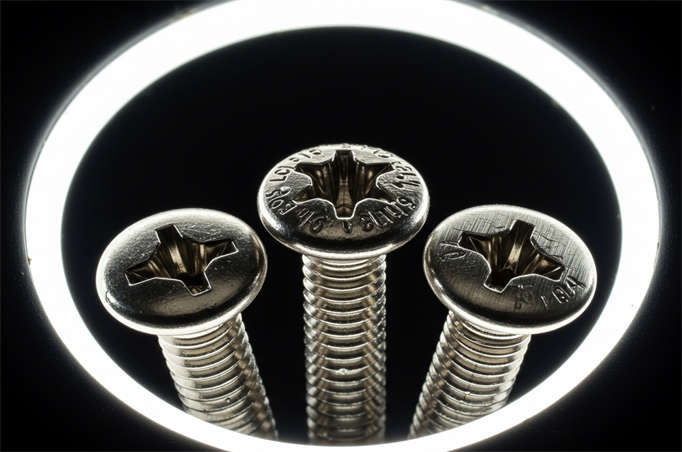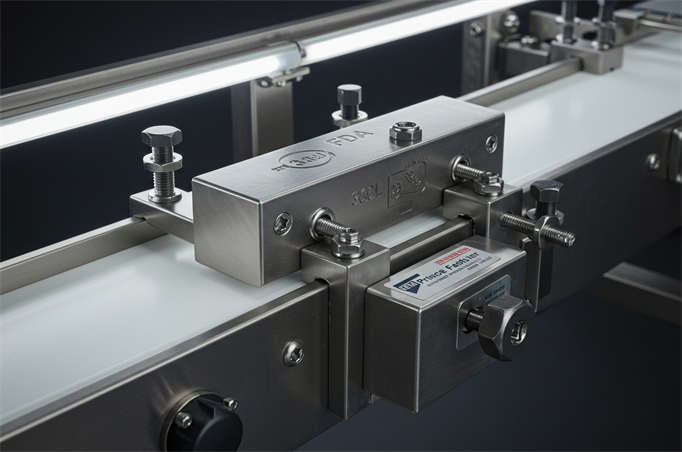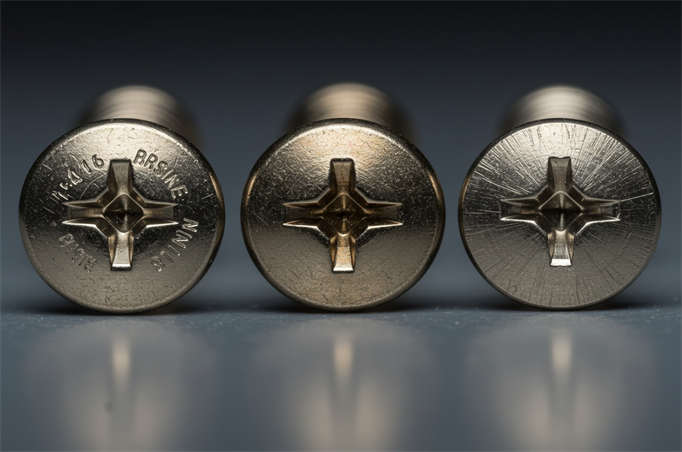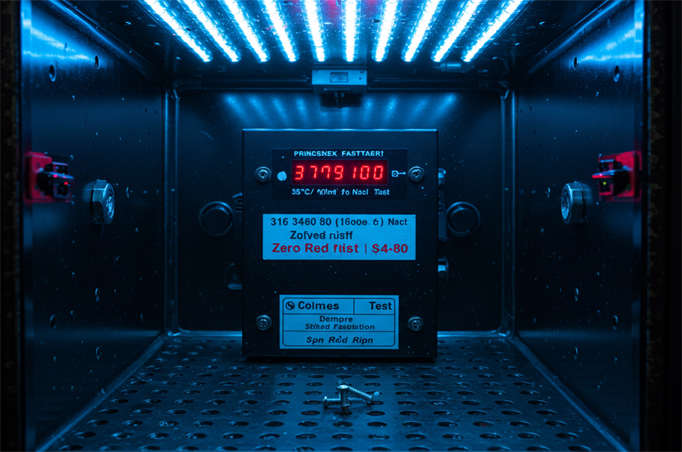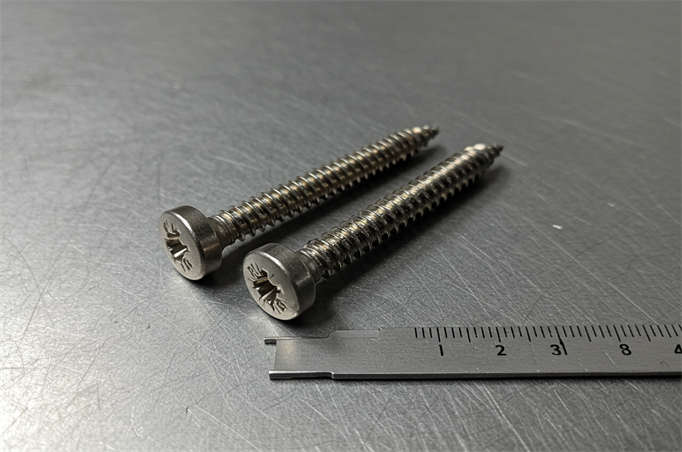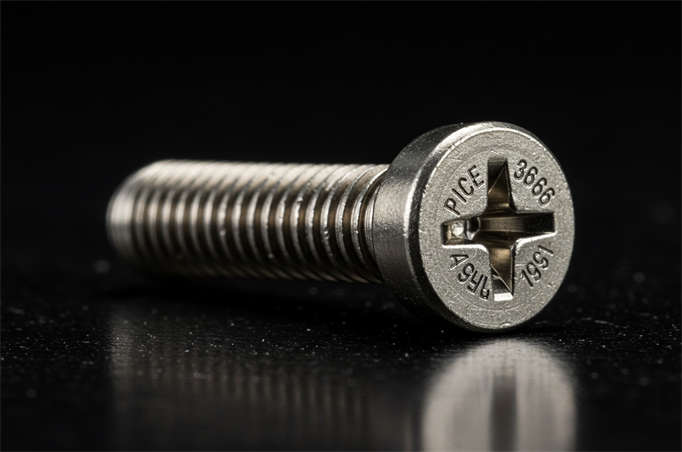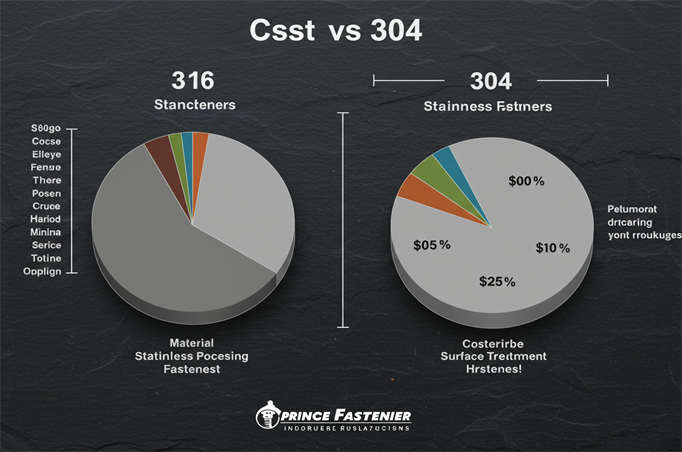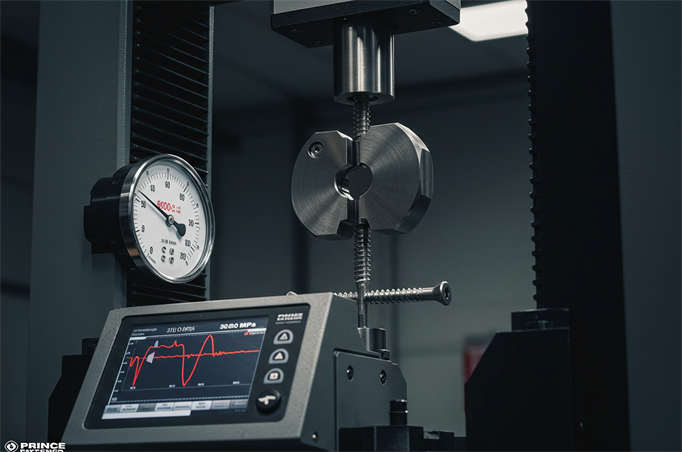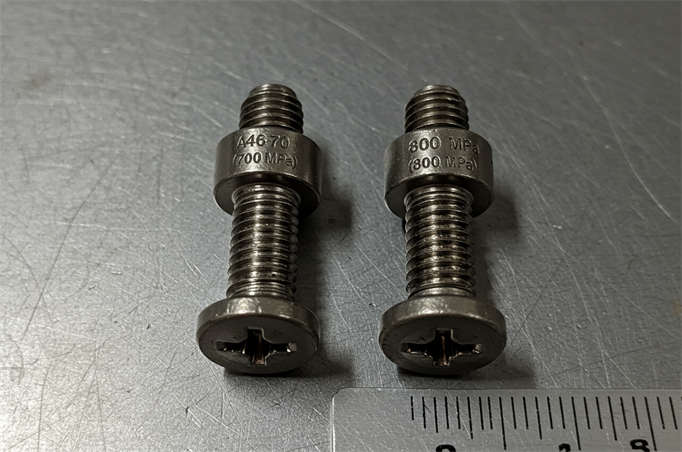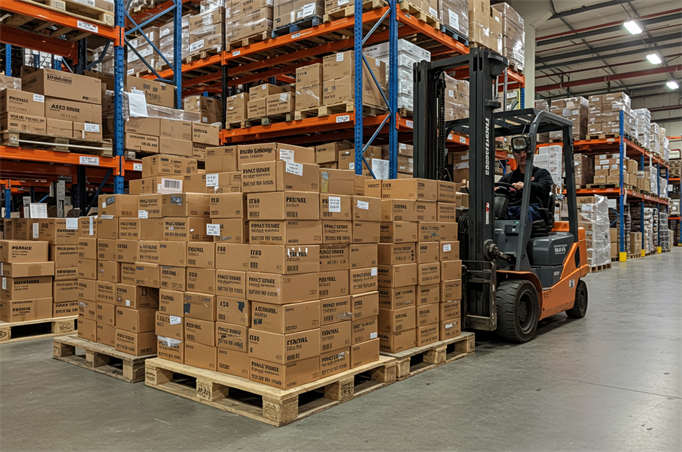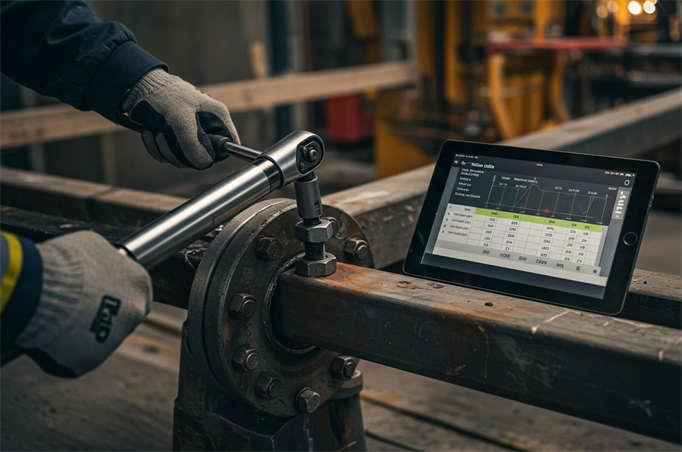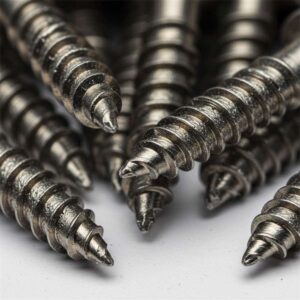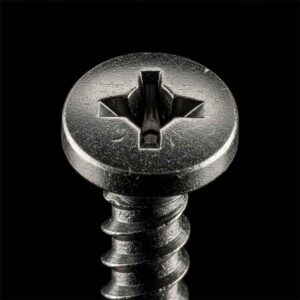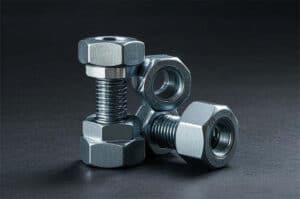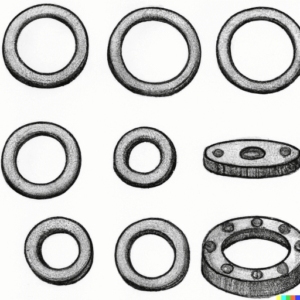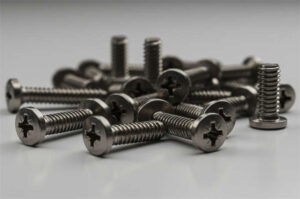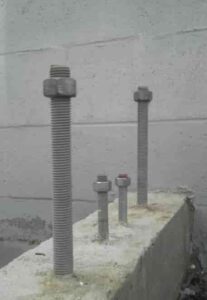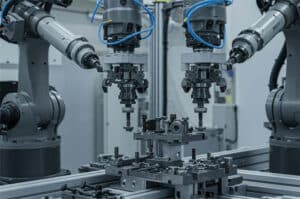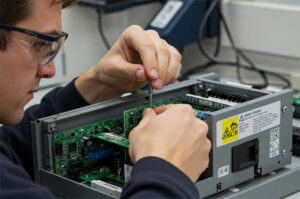Welcome to the Prince Fastener knowledge hub, your single-source authority on 316 ss screws. For more than two decades, we have lived and breathed stainless-steel fasteners, and today we’re packaging everything we know into one practical guide so you can specify, buy, and install 316 ss スクリュー with absolute confidence. Whether you are a structural engineer balancing salt-spray resistance with 800 MPa tensile strength, a purchasing manager juggling fluctuating nickel and molybdenum prices, or a maintenance team wondering why yesterday’s 304 bolts are already showing tea-stain corrosion, the answers start here.
In the next few minutes you will learn why the simple phrase “316 stainless steel” is only half the story—the hidden half is the performance class (A4-70 vs A4-80), the surface finish (passivated, electro-polished, or laser-marked), and the supply-chain reliability that ultimately decides if your project meets spec on time and budget. We’ll decode standards from ISO 3506 to ASTM F879, translate ksi into MPa, and compare real-world costs per thousand pieces delivered to your dock.
By the end of this article, you’ll understand exactly when to upgrade from 304, how to justify the 2× price delta to your finance team, and which Prince Fastener SKU—hex, socket, thread-forming, or custom stud—fits your torque table and salt-fog requirement. Bookmark this page, share it with your QA and procurement colleagues, and keep our contact button handy: when the spec sheet is finalized, Prince Fastener is ready to ship fully certified 316 ss screws from our global warehouses within 24 hours.
Understanding Stainless Steel Screw Strength
At Prince Fastener, we understand “strength” for stainless steel screws from two perspectives:
- The specific stainless steel material chosen (e.g., 304, 316, 431).
- The performance grade achieved by that material according to standards (e.g., A2-50, A2-70, A4-80).
We provide a comprehensive comparison of the most commonly used austenitic 304 and 316, and also introduce high-strength material options for quick selection.
I. Mechanical Properties of 304 SS Screws and 316 Austenitic SS Screws
| Dimension | 304 Stainless Steel Screws | 316 Stainless Steel Screws | Remarks |
| Room Temperature Strength (MPa) | Tensile 515–690, Yield ≈205 | Tensile 515–690, Yield 205–220 | Both have similar nominal values, with 316 being slightly higher; 316 maintains strength better at high temperatures. |
| Strength Grade Example | A2-70 (ge700 MPa) | A4-70 (ge700 MPa) A4-80 (ge800 MPa) | When the grade numbers are the same, 316 offers superior corrosion resistance; A4-80 provides higher strength. |
| コスト | 20%–30% lower | 20%–30% higher | Primarily due to the 2%–3% molybdenum and higher nickel content; processing is also slightly more difficult. |
| 適用シナリオ | General atmosphere, freshwater, indoor decoration, home appliances | Marine, high-chloride, chemical, pharmaceutical, and other highly corrosive environments | 316 can reduce long-term maintenance/replacement costs. |
Note: Chinese cold heading processes typically achieve grade 70 for M5 and above; M4 and below usually reach only grade 50, unless using special cold-drawn wire.
II. Strength Conversion
- 70 ksi ≈ 483 MPa; 90 ksi ≈ 620 MPa. Therefore, 70-90 ksi for 316 ss screws corresponds to 483-620 MPa. これは does not contradict the A4-70’s 700 MPa as listed above – the former represents the “minimum measured value” in American standard ASTM F879, while the latter is the “guaranteed grade value” from ISO 3506.
III. What if You Need Higher Strength?
| Material System | Common Grade | 熱処理 | 引張強度 | 特徴 |
| マルテンサイト | 431 (1Cr17Ni2) | Quenching + Tempering | 1000-1250 MPa | We use this for high strength and hardenability, though its corrosion resistance is lower than 304. |
| Precipitation Hardening | 17-4PH (630) | Aging | 1000-1300 MPa | This offers high strength with good corrosion resistance, ideal for aerospace and mold applications. |
| Duplex Steel | 2205 | Solution Treatment | ≥800 MPa | It provides superior pitting corrosion resistance compared to 316, and its strength is twice that of 304, though at a higher cost. |
IV. Key Selection Points
- Normal temperature, light load: 304 A2-50
- General machinery: 304 A2-70
- Salt spray/chemical: 316 A4-70
- High load + corrosion: 316 A4-80 or 2205
- Ultra-high strength: 431, 17-4PH (confirm corrosion resistance suitability)
The strength of ordinary 304 ss screws and 316 ss スクリュー is not fixed; the performance grade determines it. A2-70 (700 MPa grade) and A4-70 (700 MPa grade) are the most common “standard strengths” in engineering. If you need higher, choose A4-80 (800 MPa grade) or switch to high-strength stainless steel materials.
What’s the Difference Between 304 SS Screws and 316 SS Screws?
304 ss screws are sufficient and more affordable; 316 ss screws offer superior corrosion resistance そして cost more. We break down the differences into four key areas: composition, corrosion resistance, strength, and price.
Composition (Determines Corrosion Resistance and Cost)
- 304 ss screws: 18% Cr + 8% Ni
- 316 ss screws: 18% Cr + 10% Ni + 2-3% Mo (Molybdenum)
- Molybdenum makes 316 less prone to pitting and crevice corrosion in salt spray, seawater, and chloride environments.
Corrosion Resistance (Application Scenarios)
- 304 ss screws: Everyday atmospheric conditions, fresh water, kitchen environments, interior decoration.
- 316 ss screws: Coastal areas, marine vessels, swimming pools, chemical processing, pharmaceuticals, coastal bridges.
Strength (Nearly Identical at the Same Grade)
- Both can achieve A2-70 / A4-70 (700 MPa grade).
- 316 ss screws can also achieve A4-80 (800 MPa grade), but this requires cold hardening, which increases cost.
価格
- 316 ss screws are 20%-30% more expensive than 304 ss screws (fluctuates with nickel and molybdenum prices).
結論
- Limited budget, mild environment: Choose 304 ss screws.
- Salt spray, chloride ions, high corrosion, or long lifespan requirements: Choose 316 ss screws.
How Do 304 and 316 Stainless Steel Hardness Differ?
304 vs. 316 Stainless Steel Hardness Comparison (Typical Solution Annealed State)
| Performance Class | 素材 | Tensile Strength Rm | Yield Strength Rp0.2 | Typical Hardness | Common Diameter Range* | 適用シナリオ |
| A2-50 | 304 | ≥500 MPa | ≥210 MPa | HRB 70-90 | ≤ M4 | 家具, decorative items |
| A2-70 | 304 | ≥700 MPa | ≥450 MPa | HRB 80-100 | ≥ M5 | General machinery, construction |
| A4-70 | 316 | ≥700 MPa | ≥450 MPa | HRB 85-100 | ≥ M5 | Marine, chemical |
| A4-80 | 316 | ≥800 MPa | ≥600 MPa | HRB 90-110 | ≥ M6 | Offshore platforms, high-load equipment |
IV. Key Selection Points
- Normal temperature, light load: 304 A2-50
- General machinery: 304 A2-70
- Salt spray/chemical: 316 A4-70
- High load + corrosion: 316 A4-80 or 2205
- Ultra-high strength: 431, 17-4PH (confirm corrosion resistance suitability)
The strength of ordinary 304 ss screws and 316 ss スクリュー is not fixed; the performance grade determines it. A2-70 (700 MPa grade) and A4-70 (700 MPa grade) are the most common “standard strengths” in engineering. If you need higher, choose A4-80 (800 MPa grade) or switch to high-strength stainless steel materials.
What’s the Difference Between 304 SS Screws and 316 SS Screws?
304 ss screws are sufficient and more affordable; 316 ss screws offer superior corrosion resistance そして cost more. We break down the differences into four key areas: composition, corrosion resistance, strength, and price.
Composition (Determines Corrosion Resistance and Cost)
- 304 ss screws: 18% Cr + 8% Ni
- 316 ss screws: 18% Cr + 10% Ni + 2-3% Mo (Molybdenum)
- Molybdenum makes 316 less prone to pitting and crevice corrosion in salt spray, seawater, and chloride environments.
Corrosion Resistance (Application Scenarios)
- 304 ss screws: Everyday atmospheric conditions, fresh water, kitchen environments, interior decoration.
- 316 ss screws: Coastal areas, marine vessels, swimming pools, chemical processing, pharmaceuticals, coastal bridges.
Strength (Nearly Identical at the Same Grade)
- Both can achieve A2-70 / A4-70 (700 MPa grade).
- 316 ss screws can also achieve A4-80 (800 MPa grade), but this requires cold hardening, which increases cost.
価格
- 316 ss screws are 20%-30% more expensive than 304 ss screws (fluctuates with nickel and molybdenum prices).
結論
- Limited budget, mild environment: Choose 304 ss screws.
- Salt spray, chloride ions, high corrosion, or long lifespan requirements: Choose 316 ss screws.
How Do 304 and 316 Stainless Steel Hardness Differ?
304 vs. 316 Stainless Steel Hardness Comparison (Typical Solution Annealed State)
Table 3
In the same annealed/solution-treated state, 316 generally exhibits about 5-10% higher hardness than 304, but the difference is not significant. Both are “soft” austenitic stainless steels. For truly high hardness, we rely on cold working or switch to martensitic or precipitation-hardening stainless steels.
How to Choose the Right High-Strength Screws for Your Needs
How do you pick a “reliable” high-strength screw for your project? We break down this complex problem into five steps to guide your selection.
1. First, Determine the “Strength Grade”
- Grade 8.8: ≈ 800 MPa, suitable for general machinery and building steel structures.
- Grade 10.9: ≈ 1,000 MPa, ideal for bridges, cranes, and wind turbine towers.
- Grade 12.9: ≈ 1,220 MPa, used in automotive chassis, molds, and hydraulic cylinders.
Regardless of origin, bolts of the same grade have consistent mechanical properties. You only need to specify the grade in your design.
2. Next, Consider the “Service Environment”
- Salt spray/seawater: Choose 316 ss screws A4-70 / A4-80.
- Normal temperature, dry: Carbon steel Grade 8.8/10.9 is sufficient.
- High/low temperature: Use heat-resistant steel 25Cr2MoVA (≤ 500 ℃) or low-temperature 9% Ni steel (-196 ℃).
- Hydrogen embrittlement risk: For grades ≥ 10.9, avoid electro-galvanizing. Instead, use Dacromet, mechanical zinc, or hot-dip galvanizing.
3. Select “素材” and Heat Treatment
Table 4
4. Determine “Specifications and Torque”
- For steel structures, M16-M30 with 10.9S are common. You can refer to GB/T 1231 for torque values.
- Example: M20 initial tightening is 222 N·m; final tightening is 445 N·m.
- Limited internal space in equipment: Choose 12.9 grade internal hex screws.
- Frequent disassembly: Choose external hex tension control (TC) bolts.
5. Quick Selection Process
Identify your requirements → Make a preliminary grade selection → Filter materials based on the environment → Verify torque/length → Compare costs → Conduct small-batch testing → Proceed with bulk procurement.
Simply tell your supplier: “We need 10.9 grade M20×60 hex head high-strength bolts, material 35CrMo, Dacromet surface treatment, conforming to GB/T 1231, with a torque of 445 N·m.“ これは ensures a precise order.
Stainless Steel Screw Costs
The cost of stainless steel screws primarily comprises four components: material cost, processing fees, surface treatment, and batch size. We outline the latest market conditions and influencing factors to help you quickly estimate.
I. Material Costs (Current Market Price as of July 16, 2025)
- 304 stainless steel scrap: ≈ $1,250/ton
- 316 stainless steel scrap: ≈ $2,400/ton
- The raw material price of 316 is about 1.9 times that of 304. これは is the fundamental reason for the price difference between the two.
II. Reference Retail Prices for Stainless Steel Screws (Per Piece, Including Processing and Profit)
Table 5
III. Processing and Surface Treatment Premiums
- Precision rolling, cold heading: Stainless steel causes tooling to wear 40% faster than carbon steel, increasing processing costs by 30%-50%.
- Passivation treatment: Commonly used in marine environments, its cost is approximately 1.5 times that of ordinary electroplating.
- Eliminated galvanizing: Stainless steel often does not require electroplating, making the overall cost 8%-12% lower than carbon steel in some cases.
IV. How to Quickly Estimate
First, calculate the material cost by weight: screw unit weight (kg) × material price per ton. Example: A M6×20 304 ss screw weighs approximately 0.012 kg → Material cost ≈ $0.015.
Add processing fees: For 304 machine screws in bulk (≥ 100,000 pieces), add ≈ $0.007–$0.011 per piece. For 316 machine screws, multiply this cost by 1.2–1.3.
Surface treatment: Passivation adds $0.001–$0.003 per piece; ignore if not required.
Quantity discount: Orders over 100,000 pieces typically receive a 10%-15% discount.
In Conclusion
For common M3–M8 stainless steel screws:
- 304 ss screws bulk price: ≈ $0.005–$0.014 per piece
- 316 ss screws bulk price: ≈ $0.012–$0.028 per piece
Is the Price Difference Between 304 SS Screws and 316 SS Screws Significant?
316 SS screws are approximately 1.8 to 2.3 times more expensive than 304 SS screws. This price difference primarily stems from molybdenum metal and higher nickel prices.
Current Market Data (July 21, 2025)
- 304 scrap steel: $1,270/ton
- 316 scrap steel: $2,410/ton
Converted to Retail Screw Prices (Per Piece)
Table 6
Why the Large Difference?
316 contains 2-3% molybdenum, which is a rare and expensive metal. 316’s nickel content is also higher than 304, and fluctuations in nickel prices directly amplify the cost. On the processing end, 316 causes tooling to wear faster, increasing processing costs by an additional 20%-30%.
For regular applications, 304 is usually sufficient. However, in seawater, chemical, or high-chloride environments, the premium for 316 (approximately double the price) is often less than the long-term replacement/maintenance costs, making it a worthwhile investment.
What Are the Advantages and Disadvantages of 304 and 316 Stainless Steel?
304 vs. 316 Stainless Steel Advantages and Disadvantages Comparison
Table 7
304 is “sufficient and affordable,” while 316 is “more corrosion-resistant but twice as expensive.” If your environment involves chloride ions or high temperatures and pressures, choosing 316 can significantly reduce future maintenance costs. Otherwise, 304 will meet most of your needs.
How to Choose Between 304 SS Screws and 316 SS Screws
How do you quickly decide whether to choose 304 or 316 stainless steel screws? We break down the decision into three steps, allowing you to decide in 30 seconds.
1. First, Consider the “Environment”
- Indoor, dry, no salt spray: Choose 304 (A2-70).
- Coastal, swimming pools, chemical, high humidity with salt spray: Choose 316 (A4-70 / A4-80).
- Food, pharmaceutical, long-term immersion: Prioritize 316 to avoid heavy metal migration.
2. Next, Consider the “Stainless Steel Screw Cost”
- 316 is approximately twice the unit price of 304 (material + processing).
- If future maintenance/replacement costs are high, the “twice the price” of 316 can be more cost-effective.
3. Finally, Consider “Mechanical Requirements”
- Ordinary static load: Both strengths are similar, so 304 is sufficient.
- High load or requiring A4-80 (800 MPa): Only 316 can consistently provide this.
Choose 304 for inland, dry environments, and 316 for coastal, high-chloride environments. If your budget is tight, go with 304; for peace of mind, choose 316.
Recommended 316 SS Screw Suppliers
Recommended High-Quality 316 SS Screw Suppliers (Including Prince Fastener)
プリンスファスナー
- Website: princefastener.com
- Features: We specialize in 316 stainless steel fasteners for over 20 years. Our stock includes a full range of hex bolts, socket cap screws, self-tapping screws, machine screws, and threaded rods. We offer surface treatments such as passivation, mirror polishing, and laser marking. We support small-batch customization and one-stop export services. Our products hold ISO 9001, CE, and RoHS certifications, and we widely apply them in marine engineering, chemical equipment, and high-end architectural curtain walls.
Suzhou Zhengye Fastener Co., Ltd.
- Advantages: Direct factory supply of 316 machine screws, self-tapping screws, set screws, and custom non-standard parts. They have a supporting testing center and offer next-day delivery in Jiangsu, Zhejiang, and Shanghai.
Jiangsu Chaoyue Stainless Steel Products Co., Ltd.
- Advantages: They primarily offer 316 full threaded studs, double-end studs, and heavy hex bolts. They can customize according to DIN/ANSI/ISO standards and provide rapid prototyping.
Jinan Fanyi Hardware Co., Ltd.
- Advantages: They maintain a regular stock of 316 socket cap screws, hex bolts, nuts, and washers. They support wholesale mixing of multiple standards, including GB, DIN, ANSI, and JIS.
Wuxi Tengchi Hardware & Machinery Co., Ltd.
- Advantages: They operate a large spot warehouse in East China, providing a one-stop shop for 316 screws, nuts, spring washers, and flat washers with same-day shipping. They deliver non-standard items based on drawings within 3-5 days.
Procurement Tips
- First, confirm the specifications (DIN, ANSI, GB), then inquire if the price includes passivation or spectral testing reports.
- Prince Fastener is suitable for foreign trade and high-end projects; for urgent domestic orders, prioritize Suzhou Zhengye or Wuxi Tengchi.
What Surface Treatment Options Does Prince Fastener Offer?
At Prince Fastener, we offer a variety of surface treatment options for 316 SS screws. Common processes include:
- Passivation: This enhances corrosion resistance, removes processing iron debris, and forms a uniform oxide film.
- Electropolishing: これは achieves a mirror-bright finish, reduces surface roughness, and improves cleanliness, making it suitable for food and medical applications.
- Mechanical Polishing / Mirror Brushing: This enhances the aesthetic quality, commonly used for architectural curtain walls and high-end equipment.
- Nickel / Zinc Plating: We apply an additional metal layer over the stainless steel substrate for specific conductivity or decorative requirements.
- Phosphating: これは increases adhesion for subsequent coatings or works with lubricants to reduce friction.
- Anodizing: While typically used for aluminum, Prince Fastener can also apply this to some alloy stainless steels to achieve colored appearances or an additional insulating layer.
- Laser Marking / Color Coding: We permanently mark specifications, batch numbers, or brand logos on the head or shank.
If you require special coatings (such as PTFE, Xylan, Cerakote) or higher-grade salt spray testing (>1000h), Prince Fastener can also customize them according to your requirements.
You now have the full map: material science, mechanical grades, corrosion data, pricing logic, and supplier short-list. The next step is action.
Prince Fastener invites you to convert this knowledge into a purchase order that ships today. Our 316 ss screws are available in A4-70 and A4-80 classes, from M1.6 to M64, in hex, socket, flange, thread-forming, or fully custom geometries. Every lot is melted in electric-arc furnaces, solution-annealed, passivated to ASTM A967, そして accompanied by a third-party SGS report showing full compliance with ISO 3506-1:2020. Need 100 pcs for a prototype? 100,000 pcs for a seawater desal skid?
Either way, we hold finished-goods inventory in Houston, Rotterdam, Singapore, and Shanghai so that your lead time is measured in days, not weeks. Upload your BOM or CAD drawing to princefastener.com, and our application engineers will confirm torque values, thread engagement length, and salt-spray hours before you commit a single cent.
Remember: every minute spent re-tightening corroded 304 bolts costs more than the up-front premium for genuine 316 ss スクリュー. Make the switch once, make it Prince Fastener, and move on to the next problem—your fasteners are already solved.
In the same annealed/solution-treated state, 316 generally exhibits about 5-10% higher hardness than 304, but the difference is not significant. Both are “soft” austenitic stainless steels. For truly high hardness, we rely on cold working or switch to martensitic or precipitation-hardening stainless steels.
How to Choose the Right High-Strength Screws for Your Needs
How do you pick a “reliable” high-strength screw for your project? We break down this complex problem into five steps to guide your selection.
1. First, Determine the “Strength Grade”
- Grade 8.8: ≈ 800 MPa, suitable for general machinery and building steel structures.
- Grade 10.9: ≈ 1,000 MPa, ideal for bridges, cranes, and wind turbine towers.
- Grade 12.9: ≈ 1,220 MPa, used in automotive chassis, molds, and hydraulic cylinders.
Regardless of origin, bolts of the same grade have consistent mechanical properties. You only need to specify the grade in your design.
2. Next, Consider the “Service Environment”
- Salt spray/seawater: Choose 316 ss screws A4-70 / A4-80.
- Normal temperature, dry: Carbon steel Grade 8.8/10.9 is sufficient.
- High/low temperature: Use heat-resistant steel 25Cr2MoVA (≤ 500 ℃) or low-temperature 9% Ni steel (-196 ℃).
- Hydrogen embrittlement risk: For grades ≥ 10.9, avoid electro-galvanizing. Instead, use Dacromet, mechanical zinc, or hot-dip galvanizing.
3. Select “素材” and Heat Treatment
| グレード | Recommended Materials | Key Process | 代表的なアプリケーション |
| 8.8 | 35#, 45#, ML35 | Quenching & Tempering | General machinery |
| 10.9 | 40Cr, 35CrMo, 20MnTiB | Quenching + Tempering | Bridges, wind power |
| 12.9 | SCM435, 42CrMo, 40CrNiMoA | Quenching + Tempering + Dehydrogenation | Automotive, aerospace |
4. Determine “Specifications and Torque”
- For steel structures, M16-M30 with 10.9S are common. You can refer to GB/T 1231 for torque values.
- Example: M20 initial tightening is 222 N·m; final tightening is 445 N·m.
- Limited internal space in equipment: Choose 12.9 grade internal hex screws.
- Frequent disassembly: Choose external hex tension control (TC) bolts.
5. Quick Selection Process
Identify your requirements → Make a preliminary grade selection → Filter materials based on the environment → Verify torque/length → Compare costs → Conduct small-batch testing → Proceed with bulk procurement.
Simply tell your supplier: “We need 10.9 grade M20×60 hex head high-strength bolts, material 35CrMo, Dacromet surface treatment, conforming to GB/T 1231, with a torque of 445 N·m.“ これは ensures a precise order.
Stainless Steel Screw Costs
The cost of stainless steel screws primarily comprises four components: material cost, processing fees, surface treatment, and batch size. We outline the latest market conditions and influencing factors to help you quickly estimate.
I. Material Costs (Current Market Price as of July 16, 2025)
- 304 stainless steel scrap: ≈ $1,250/ton
- 316 stainless steel scrap: ≈ $2,400/ton
- The raw material price of 316 is about 1.9 times that of 304. これは is the fundamental reason for the price difference between the two.
II. Reference Retail Prices for Stainless Steel Screws (Per Piece, Including Processing and Profit)
At Prince Fastener, we know that cost is a significant factor in your decision-making, especially when choosing between different grades of ステンレス鋼ねじ. Here’s a look at typical price differences between 304 and 316 stainless steel self-tapping and machine screws. Please note that these are example prices in USD and actual costs may vary based on market fluctuations and order volume.
| Specification Example | 304 Self-Tapping/Machine Screw (USD/piece) | 316 Self-Tapping/Machine Screw (USD/piece) | Price Difference |
| M3×6 Phillips Pan Head | $0.0028–$0.0055 | $0.0069–$0.011 | 2–2.5 times |
| M5×12 Hex Socket | $0.011–$0.017 | $0.028–$0.041 | 2.0–2.5 times |
| M8×40 Hex Head | $0.034–$0.048 | $0.076–$0.10 | 2.0–2.2 times |
III. Processing and Surface Treatment Premiums
- Precision rolling, cold heading: Stainless steel causes tooling to wear 40% faster than carbon steel, increasing processing costs by 30%-50%.
- Passivation treatment: Commonly used in marine environments, its cost is approximately 1.5 times that of ordinary electroplating.
- Eliminated galvanizing: Stainless steel often does not require electroplating, making the overall cost 8%-12% lower than carbon steel in some cases.
IV. How to Quickly Estimate
First, calculate the material cost by weight: screw unit weight (kg) × material price per ton. Example: A M6×20 304 ss screw weighs approximately 0.012 kg → Material cost ≈ $0.015.
Add processing fees: For 304 machine screws in bulk (≥ 100,000 pieces), add ≈ $0.007–$0.011 per piece. For 316 machine screws, multiply this cost by 1.2–1.3.
Surface treatment: Passivation adds $0.001–$0.003 per piece; ignore if not required.
Quantity discount: Orders over 100,000 pieces typically receive a 10%-15% discount.
In Conclusion
For common M3–M8 stainless steel screws:
- 304 ss screws bulk price: ≈ $0.005–$0.014 per piece
- 316 ss screws bulk price: ≈ $0.012–$0.028 per piece
Is the Price Difference Between 304 SS Screws and 316 SS Screws Significant?
316 SS screws are approximately 1.8 to 2.3 times more expensive than 304 SS screws. This price difference primarily stems from molybdenum metal and higher nickel prices.
Current Market Data (July 21, 2025)
- 304 scrap steel: $1,270/ton
- 316 scrap steel: $2,410/ton
Converted to Retail Screw Prices (Per Piece)
| Specification Example | 304 Price (USD/piece) | 316 Price (USD/piece) | Price Difference Multiplier |
| M5×12 Hex Socket | $0.011–$0.017 | $0.028–$0.041 | ≈2.0–2.5× |
| M16×150 Hex Head | $0.69–$0.83 | $1.52 | ≈2.0× |
Why the Large Difference?
316 contains 2-3% molybdenum, which is a rare and expensive metal. 316’s nickel content is also higher than 304, and fluctuations in nickel prices directly amplify the cost. On the processing end, 316 causes tooling to wear faster, increasing processing costs by an additional 20%-30%.
For regular applications, 304 is usually sufficient. However, in seawater, chemical, or high-chloride environments, the premium for 316 (approximately double the price) is often less than the long-term replacement/maintenance costs, making it a worthwhile investment.
What Are the Advantages and Disadvantages of 304 and 316 Stainless Steel?
304 vs. 316 Stainless Steel Advantages and Disadvantages Comparison
At Prince Fastener, we understand the nuances of 304 and 316 stainless steel screws. Making the right choice between these two popular grades is essential for the performance and longevity of your applications. Here’s a detailed comparison to guide you:
| Dimension | 304 (06Cr18Ni9) | 316 (06Cr17Ni12Mo2) |
| 耐食性 | We find it good for atmospheric conditions, freshwater, steam, and weak acids/bases. However, it’s susceptible to pitting corrosion from chlorides (like seawater, salt spray). | Due to its 2-3% Molybdenum (Mo) content, it offers significantly superior resistance to pitting, crevice corrosion, seawater, and chemical media compared to 304. |
| Strength/Hardness | Its annealed tensile strength (σb) is approximately 515 MPa, with a Vickers hardness (HV) of about 200. We can further strengthen it through cold working. | Its strength is slightly higher, with an annealed tensile strength (σb) of about 515 MPa and an HV of approximately 220. It also maintains strength better at high temperatures. |
| Heat Resistance | We recommend it for continuous use up to 800 °C. | It handles continuous use up to 870 °C and can withstand short durations at 1,200-1,300 °C. |
| Magnetism | As an austenitic stainless steel, it is virtually non-magnetic. | Also an austenitic stainless steel, it is nearly non-magnetic (though it may exhibit weak magnetism after processing). |
| Workability | We find it excellent for deep drawing, bending, and welding. | Its workability is similar to 304, but the Mo content increases its hardness, leading to slightly more tool wear. |
| コスト | As a standard chrome-nickel steel, its price is relatively lower. | Due to its Mo content, its raw material cost is about 1.9 times that of 304, making the final part roughly twice as expensive. |
| 代表的なアプリケーション | We use it in kitchen equipment, architectural decoration, home appliances, food machinery, and automotive parts. | We apply it in marine equipment, chemical pipelines, medical implants, seawater desalination, and high-end kitchenware. |
304 is “sufficient and affordable,” while 316 is “more corrosion-resistant but twice as expensive.” If your environment involves chloride ions or high temperatures and pressures, choosing 316 can significantly reduce future maintenance costs. Otherwise, 304 will meet most of your needs.
How to Choose Between 304 SS Screws and 316 SS Screws
How do you quickly decide whether to choose 304 or 316 stainless steel screws? We break down the decision into three steps, allowing you to decide in 30 seconds.
1. First, Consider the “Environment”
- Indoor, dry, no salt spray: Choose 304 (A2-70).
- Coastal, swimming pools, chemical, high humidity with salt spray: Choose 316 (A4-70 / A4-80).
- Food, pharmaceutical, long-term immersion: Prioritize 316 to avoid heavy metal migration.
2. Next, Consider the “Stainless Steel Screw Cost”
- 316 is approximately twice the unit price of 304 (material + processing).
- If future maintenance/replacement costs are high, the “twice the price” of 316 can be more cost-effective.
3. Finally, Consider “Mechanical Requirements”
- Ordinary static load: Both strengths are similar, so 304 is sufficient.
- High load or requiring A4-80 (800 MPa): Only 316 can consistently provide this.
Choose 304 for inland, dry environments, and 316 for coastal, high-chloride environments. If your budget is tight, go with 304; for peace of mind, choose 316.
Recommended 316 SS Screw Suppliers
Recommended High-Quality 316 SS Screw Suppliers (Including Prince Fastener)
プリンスファスナー
- Website: princefastener.com
- Features: We specialize in 316 stainless steel fasteners for over 20 years. Our stock includes a full range of hex bolts, socket cap screws, self-tapping screws, machine screws, and threaded rods. We offer surface treatments such as passivation, mirror polishing, and laser marking. We support small-batch customization and one-stop export services. Our products hold ISO 9001, CE, and RoHS certifications, and we widely apply them in marine engineering, chemical equipment, and high-end architectural curtain walls.
Suzhou Zhengye Fastener Co., Ltd.
- Advantages: Direct factory supply of 316 machine screws, self-tapping screws, set screws, and custom non-standard parts. They have a supporting testing center and offer next-day delivery in Jiangsu, Zhejiang, and Shanghai.
Jiangsu Chaoyue Stainless Steel Products Co., Ltd.
- Advantages: They primarily offer 316 full threaded studs, double-end studs, and heavy hex bolts. They can customize according to DIN/ANSI/ISO standards and provide rapid prototyping.
Jinan Fanyi Hardware Co., Ltd.
- Advantages: They maintain a regular stock of 316 socket cap screws, hex bolts, nuts, and washers. They support wholesale mixing of multiple standards, including GB, DIN, ANSI, and JIS.
Wuxi Tengchi Hardware & Machinery Co., Ltd.
- Advantages: They operate a large spot warehouse in East China, providing a one-stop shop for 316 screws, nuts, spring washers, and flat washers with same-day shipping. They deliver non-standard items based on drawings within 3-5 days.
Procurement Tips
- First, confirm the specifications (DIN, ANSI, GB), then inquire if the price includes passivation or spectral testing reports.
- Prince Fastener is suitable for foreign trade and high-end projects; for urgent domestic orders, prioritize Suzhou Zhengye or Wuxi Tengchi.
What Surface Treatment Options Does Prince Fastener Offer?
At Prince Fastener, we offer a variety of surface treatment options for 316 SS screws. Common processes include:
- Passivation: This enhances corrosion resistance, removes processing iron debris, and forms a uniform oxide film.
- Electropolishing: これは achieves a mirror-bright finish, reduces surface roughness, and improves cleanliness, making it suitable for food and medical applications.
- Mechanical Polishing / Mirror Brushing: This enhances the aesthetic quality, commonly used for architectural curtain walls and high-end equipment.
- Nickel / Zinc Plating: We apply an additional metal layer over the stainless steel substrate for specific conductivity or decorative requirements.
- Phosphating: これは increases adhesion for subsequent coatings or works with lubricants to reduce friction.
- Anodizing: While typically used for aluminum, Prince Fastener can also apply this to some alloy stainless steels to achieve colored appearances or an additional insulating layer.
- Laser Marking / Color Coding: We permanently mark specifications, batch numbers, or brand logos on the head or shank.
If you require special coatings (such as PTFE, Xylan, Cerakote) or higher-grade salt spray testing (>1000h), Prince Fastener can also customize them according to your requirements.
You now have the full map: material science, mechanical grades, corrosion data, pricing logic, and supplier short-list. The next step is action.
Prince Fastener invites you to convert this knowledge into a purchase order that ships today. Our 316 ss screws are available in A4-70 and A4-80 classes, from M1.6 to M64, in hex, socket, flange, thread-forming, or fully custom geometries. Every lot is melted in electric-arc furnaces, solution-annealed, passivated to ASTM A967, そして accompanied by a third-party SGS report showing full compliance with ISO 3506-1:2020. Need 100 pcs for a prototype? 100,000 pcs for a seawater desal skid?
Either way, we hold finished-goods inventory in Houston, Rotterdam, Singapore, and Shanghai so that your lead time is measured in days, not weeks. Upload your BOM or CAD drawing to princefastener.com, and our application engineers will confirm torque values, thread engagement length, and salt-spray hours before you commit a single cent.
Remember: every minute spent re-tightening corroded 304 bolts costs more than the up-front premium for genuine 316 ss スクリュー. Make the switch once, make it Prince Fastener, and move on to the next problem—your fasteners are already solved.
